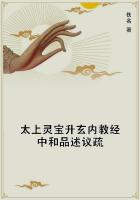In England, these may be traced usually to Shakspeare, Bacon, Milton, or Hooker, even to Van Helmont and Behmen, and do all have a kind of filial retrospect to Plato and the Greeks. Of this kind is Lord Bacon's sentence, that "nature is commanded by obeying her;" his doctrine of poetry, which "accommodates the shows of things to the desires of the mind," or the Zoroastrian definition of poetry, mystical, yet exact, "apparent pictures of unapparent natures;"Spenser's creed, that "soul is form, and doth the body make;" the theory of Berkeley, that we have no certain assurance of the existence of matter; Doctor Samuel Clarke's argument for theism from the nature of space and time; Harrington's political rule, that power must rest on land, -- a rule which requires to be liberally interpreted; the theory of Swedenborg, so cosmically applied by him, that the man makes his heaven and hell; Hegel's study of civil history, as the conflict of ideas and the victory of the deeper thought; the identity-philosophy of Schelling, couched in the statement that "all difference is quantitative." So the very announcement of the theory of gravitation, of Kepler's three harmonic laws, and even of Dalton's doctrine of definite proportions, finds a sudden response in the mind, which remains a superior evidence to empirical demonstrations. I cite these generalizations, some of which are more recent, merely to indicate a class. Not these particulars, but the mental plane or the atmosphere from which they emanate, was the home and elements of the writers and readers in what we loosely call the Elizabethan age, (say, in literary history, the period from 1575 to 1625,) yet a period almost short enough to justify Ben Jonson's remark on Lord Bacon; "about his time, and within his view, were born all the wits that could honor a nation, or help study."Such richness of genius had not existed more than once before.
These heights could not be maintained. As we find stumps of vast trees in our exhausted soils, and have received traditions of their ancient fertility to tillage, so history reckons epochs in which the intellect of famed races became effete. So it fared with English genius. These heights were followed by a meanness, and a descent of the mind into lower levels; the loss of wings; no high speculation.
Locke, to whom the meaning of ideas was unknown, became the type of philosophy, and his "understanding" the measure, in all nations, of the English intellect. His countrymen forsook the lofty sides of Parnassus, on which they had once walked with echoing steps, and disused the studies once so beloved; the powers of thought fell into neglect. The later English want the faculty of Plato and Aristotle, of grouping men in natural classes by an insight of general laws, so deep, that the rule is deduced with equal precision from few subjects or from one, as from multitudes of lives. Shakspeare is supreme in that, as in all the great mental energies. The Germans generalize: the English cannot interpret the German mind. German science comprehends the English. The absence of the faculty in England is shown by the timidity which accumulates mountains of facts, as a bad general wants myriads of men and miles of redoubts, to compensate the inspirations of courage and conduct.
The English shrink from a generalization. "They do not look abroad into universality, or they draw only a bucket-full at the fountain of the First Philosophy for their occasion, and do not go to the spring-head." Bacon, who said this, is almost unique among his countrymen in that faculty, at least among the prose-writers.
Milton, who was the stair or high table-land to let down the English genius from the summits of Shakspeare, used this privilege sometimes in poetry, more rarely in prose. For a long interval afterwards, it is not found. Burke was addicted to generalizing, but his was a shorter line; as his thoughts have less depth, they have less compass. Hume's abstractions are not deep or wise. He owes his fame to one keen observation, that no copula had been detected between any cause and effect, either in physics or in thought; that the term cause and effect was loosely or gratuitously applied to what we know only as consecutive, not at all as causal. Doctor Johnson's written abstractions have little value: the tone of feeling in them makes their chief worth.
Mr. Hallam, a learned and elegant scholar, has written the history of European literature for three centuries, -- a performance of great ambition, inasmuch as a judgment was to be attempted on every book. But his eye does not reach to the ideal standards: the verdicts are all dated from London: all new thought must be cast into the old moulds. The expansive element which creates literature is steadily denied. Plato is resisted, and his school. Hallam is uniformly polite, but with deficient sympathy; writes with resolute generosity, but is unconscious of the deep worth which lies in the mystics, and which often outvalues as a seed of power and a source of revolution all the correct writers and shining reputations of their day. He passes in silence, or dismisses with a kind of contempt, the profounder masters: a lover of ideas is not only uncongenial, but unintelligible. Hallam inspires respect by his knowledge and fidelity, by his manifest love of good books, and he lifts himself to own better than almost any the greatness of Shakspeare, and better than Johnson he appreciates Milton. But in Hallam, or in the firmer intellectual nerve of Mackintosh, one still finds the same type of English genius. It is wise and rich, but it lives on its capital.
It is retrospective. How can it discern and hail the new forms that are looming up on the horizon, -- new and gigantic thoughts which cannot dress themselves out of any old wardrobe of the past?















